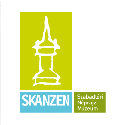Múzeumi iránytű 8.
 Summary
Summary
Knowledge and experience that has accumulated for the period of more than two hundred years of the history of museology gives us a strong base to maintain well-tried structural and organizational forms and contents almost without change. Yet we have to accept the fact that museums are rather like living tissues that cannot be detached from its social body and can live, develop only in symbiosis with society. Changes of our environment have always fundamentally influenced the present and future of museums.
However, what matters is whether this relationship can be considered interrelated or a one-sided process of adjusting: museums passively meet the challenges of a continuously changing world or they actively make happen these changes by forcefully examining and studying our environment to find the most appropriate reaction. This drive of change should not be evaluated as a twenty-first century ill fate, since the competitive atmosphere, that is becoming more and more determinant both in professional work and in funding, generates the need of this new approach.
In 2007 the Department of Public Collections of the Ministry of Education and Culture considered as an immediate task to work out and start a museum management training course for general directors and senior managers of museums. This is why we supported the launch of the course organised by the Museum Education Centre, Szentendre, in 2007–2008. In 2009 the training continued in the framework of “The Museums for Everyone Program – Strengthening the Educational Role of Museums – Central Methodological Development (2008–2013) TÁMOP-3.2.8/A-08-2008-0002. The aim of the training is to give a comprehensive, professional and practical knowledge on museum organisation, management, psychology, planning, economy, law and marketing for museum directors and managers current and to be in office. An important aspect of the training is to develop managerial skills, to support museum directors in improving their knowledge and gain new experiences. During the courses the participants take part in seminars and practical classes, complete tasks both individually and in groups. At the end of the training - as a prerequisite to obtain the certificate - each participant has to write an essay, the topic of which is a plan of a development project for the next three years in the institute where he or she works.
In 2010 we had the opportunity to publish the most important pieces of professional and management knowledge in two volumes as part of the Museum compass series. The publication is based upon the experience cumulated since the start of the training program and the feedback from the participants, colleagues and lecturers who attended the courses.
We wonder if managers are born managers or it can be acquired throughout lifetime. Many people tried to answer this question; however they all came to the same answer: both. A manager should possess proper competences to be able to put together the future vision of his or her institute and then to gain his colleagues’ support to complete it. The catchwords of our managerial behaviour are: responsibility, genuineness, high-level professionalism, creativity, openness, sustainability and partnership. By explaining these terms, our overall goal is to point at the multiple and diverse set of possibilities that can help museum managers proactively react to and satisfy expectations of society.
The conception and the structure of this book are the initiative of Annamária Vigh, Head of Department, Public Collections of the Ministry of National Resources, who also revised the book.
The first volume contains professional museum studies, questions of planning comprehensive institutional and partial strategies as well as essays about modern and up-to-date management methods. The second volume will be published soon, containing administrative, regulatory, legal, organisation development and economic themes.
The list of proposals for positive changes is endless, nevertheless, it cannot exempt actual museum managers of their original, complex intellectual duty: work out and realise the local opportunities and chances of development, improvement and renewal. We hope our books will be of benefit to its readers by giving both theoretical and practical help.





